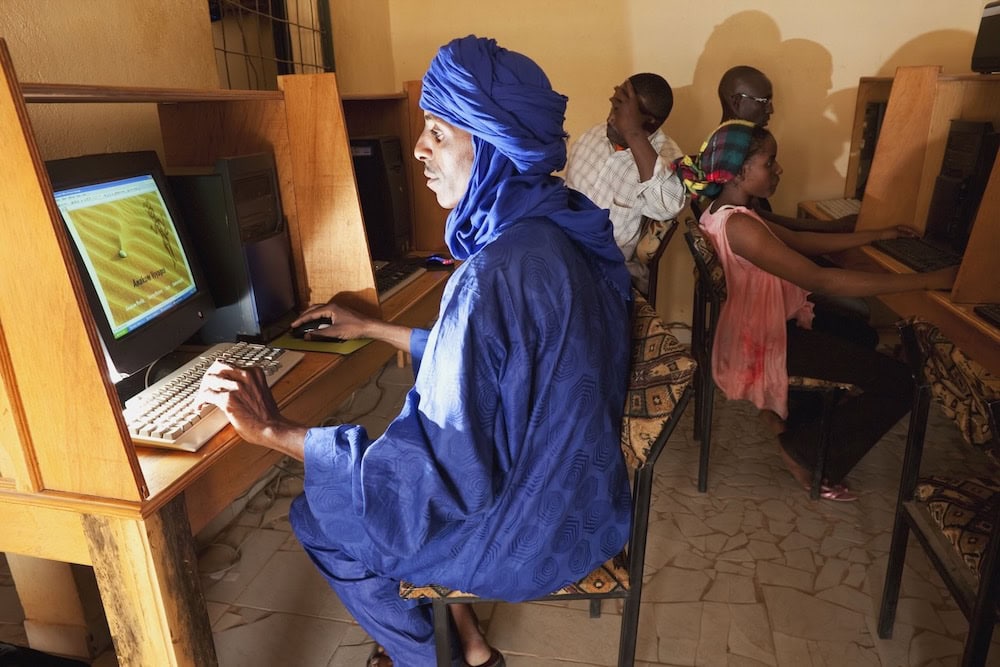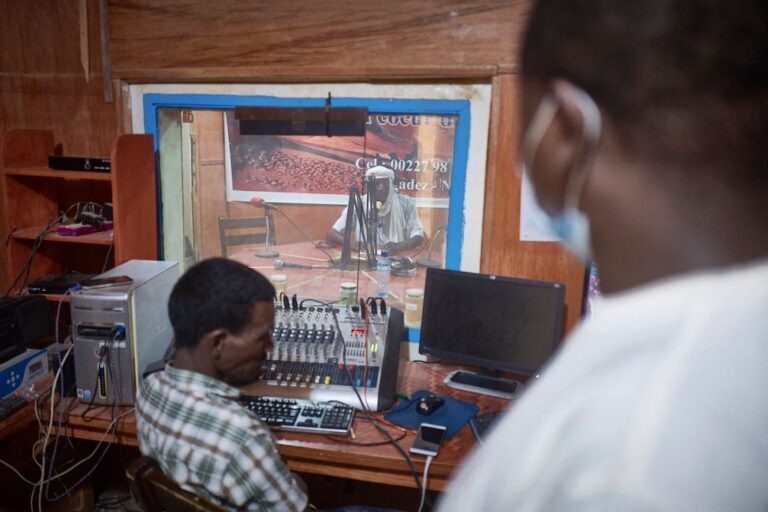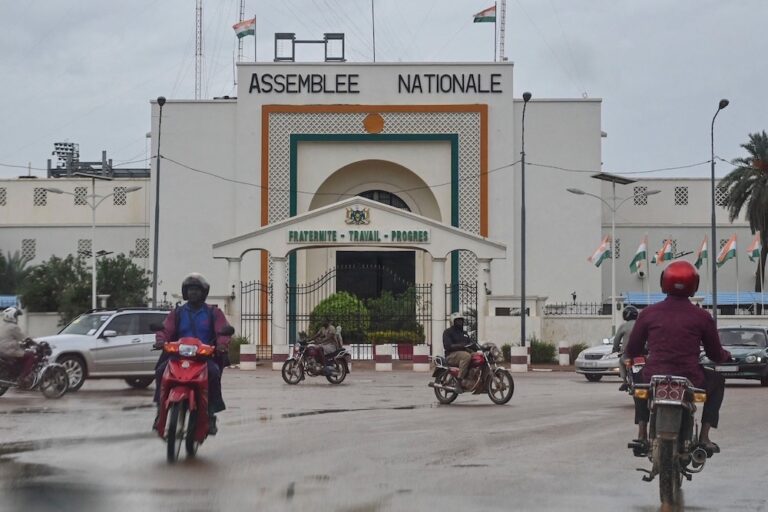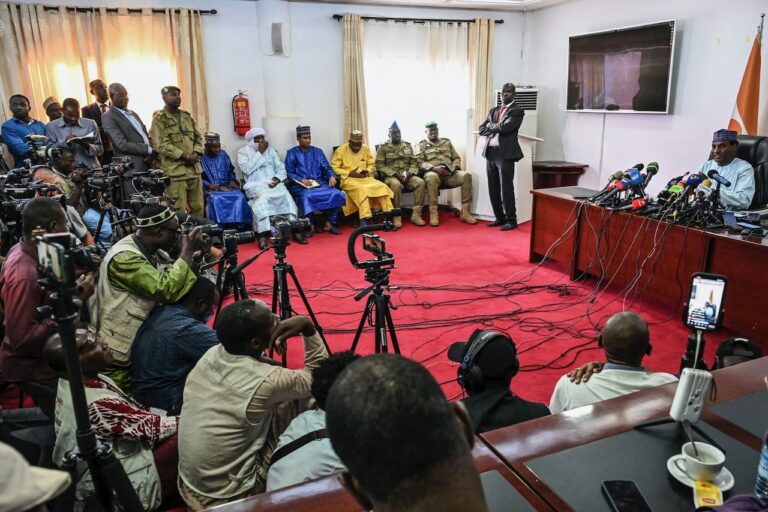Nigerien authorities have criminalised journalism through an amendment to the cybercrime law, reversing the previous government's 2022 decision to replace prison sentences with fines.
This statement was originally published on mfwa.org on 17 June 2024.
The Media Foundation for West Africa (MFWA) has learned with concern that the Nigerien authorities have reintroduced prison sentences for defamation, insults and dissemination of data likely to disturb public order via social networks. According to the Nigerien authorities, this decision was taken in order to restore the balance between freedom of expression and the protection of individual rights, as well as to preserve public peace and security.
Head of State of Niger, General Abdourahamane Tiani, on June 7, 2024, signed an ordinance amending law no. 2019-33 of July 3, 2019, on the repression of cybercrime. Under Article 29, anyone found guilty of defamation or insult via an electronic communication medium could now be sentenced to between one and three years’ imprisonment and a fine of between one and five million CFA francs (1,643.86 and 8,000 US Dollars).
Similarly, the dissemination of data likely to disturb public order or undermine human dignity could result in a prison sentence of two to five years and a fine of two to five million CFA francs, according to Article 31 of the new law
The latest changes reverse the efforts of the previous civilian government, which in July 2022, amended the July 3, 2019 law by removing prison sentences and replacing them with simple fines.
The media – a footstool of the junta
In Niger, freedom of the press has been in real danger since the coup d’état of July 26, 2023. The crackdown on critical voices is so pronounced that having a journalist willing to testify openly about the ordeal of media men and women is an uphill battle.
“I think we’ve suffered enough already. I’d rather not talk to you than find myself in exile or prison after telling you what we’re going through right now,” Nigerien journalist Rachidatou Dramane (not her real name), told MFWA.
Rachidatou’s words speak volumes about the prevailing climate between the new Nigerien authorities and the country’s journalists. A difficult relationship described as “cold and distant” by Adamou Aboubacar (not his real name), another Nigerien media practitioner, who insists that any journalist who utters the wrong word can find himself in prison or threatened by certain supporters of the authorities.
Several independent journalists in Niger have been threatened by the authorities and no longer dare to speak out. Samira Sabou, a journalist and blogger, was kidnapped and held for eight days without anyone knowing her whereabouts. Today, two Niger journalists are still being held by the military authorities. They are the publication director of the newspaper l’Enquêteur, Soumma Maïga, and the former director of Radio Anfani, Ousmane Toudu.
The MFWA is therefore concerned about the serious consequences of these new measures taken by the Nigerien authorities and calls on them to reverse their decision.
MFWA also calls for the release of the imprisoned journalists and urges the Nigerien government to take the necessary measures to facilitate the work of media men and women, in complete freedom and independence.



